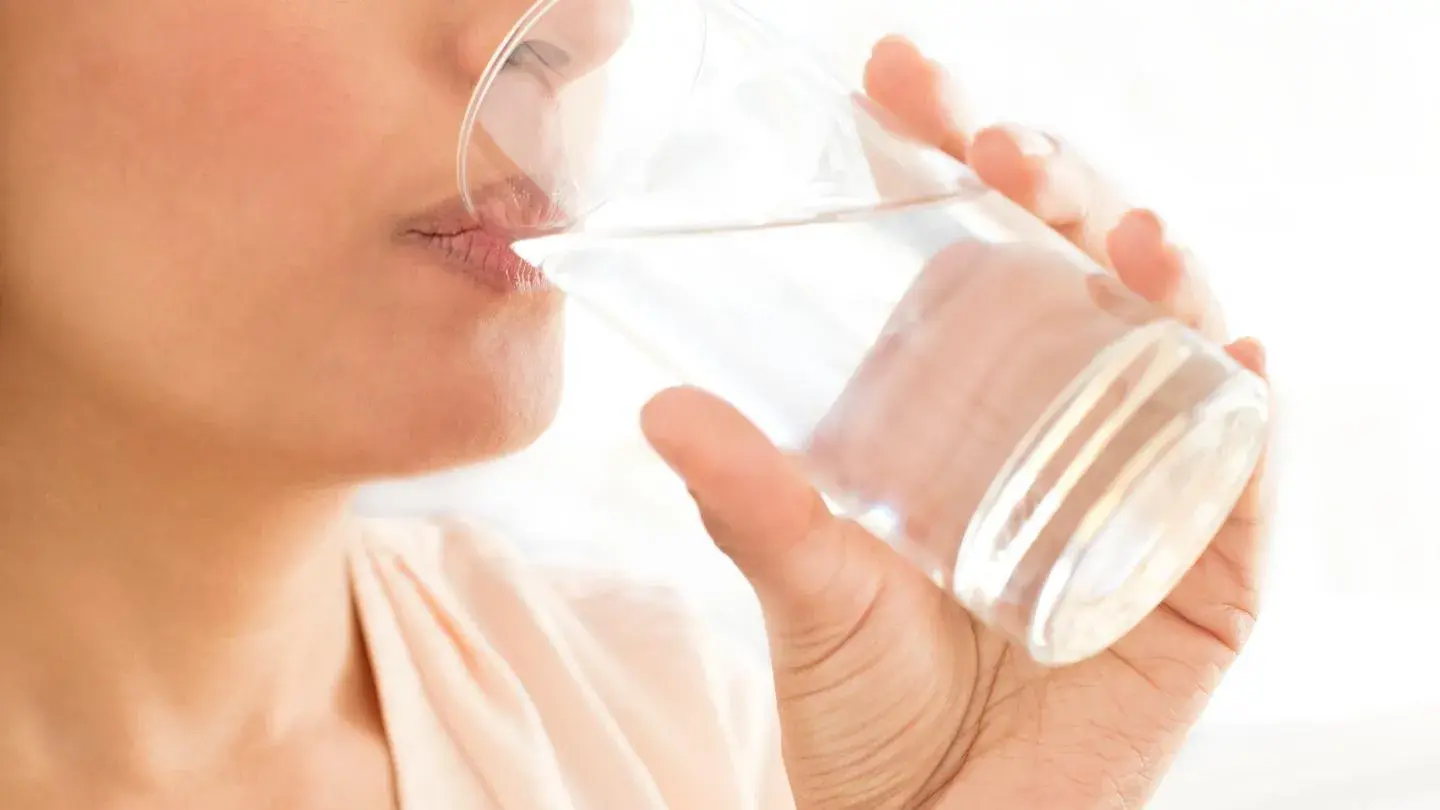Gastric sleeve surgery significantly alters the digestive system, necessitating precise post-operative care. Among the crucial elements for successful recovery and sustained weight loss, adequate hydration stands paramount. Clinical observations confirm that proper fluid intake mitigates common post-surgical complications like dehydration and electrolyte imbalances, directly impacting patient well-being. Furthermore, consistent adherence to fluid guidelines supports the new, reduced stomach capacity, facilitating nutrient absorption and preventing discomfort. Evidence-based protocols emphasize specific hydration strategies to optimize healing and promote long-term health outcomes following this transformative procedure.
Table of Contents
The Science Behind Water’s Role in Bariatric Recovery
• Cellular regeneration mechanisms require optimal hydration levels to function effectively after gastric sleeve procedures. Water serves as the primary medium for transporting essential nutrients to healing tissues while facilitating the removal of metabolic waste products from surgical sites.
• Protein synthesis acceleration depends heavily on adequate fluid intake, as water participates directly in the biochemical processes that rebuild damaged tissues. The importance of water consumption in gastric sleeve surgery becomes evident when considering that dehydrated cells cannot efficiently produce the collagen and elastin necessary for proper wound healing.
• Enhanced nutrient absorption occurs when the digestive system maintains proper hydration levels throughout the recovery period. Water acts as a solvent for vitamins and minerals, ensuring that the reduced stomach capacity does not compromise the body’s ability to utilise essential micronutrients effectively.
• Metabolic waste elimination accelerates significantly when patients maintain consistent fluid intake patterns. The kidneys require sufficient water volume to filter toxins and byproducts generated during the healing process, preventing the accumulation of harmful substances that could impair recovery.
Research demonstrates that the importance of water after gastric sleeve surgery extends beyond basic hydration needs. Osmotic pressure regulation within cells depends on adequate water availability, ensuring that nutrients can cross cell membranes efficiently whilst maintaining cellular integrity during the critical healing phase.
• Blood volume maintenance requires careful attention to fluid balance, as proper circulation delivers oxygen and nutrients to healing tissues. Dehydration reduces blood plasma volume, potentially compromising the cardiovascular system’s ability to support tissue repair processes.
• Temperature regulation mechanisms function optimally when the body maintains adequate hydration levels. Water’s high heat capacity helps stabilise core body temperature, creating ideal conditions for enzymatic reactions involved in tissue regeneration.
Why water is vital after bariatric surgery becomes clear when examining lymphatic system function. The lymphatic vessels require sufficient fluid to transport immune cells and remove cellular debris from surgical sites, directly impacting infection prevention and healing rates.
Water consumption for recovery after gastric sleeve surgery supports electrolyte balance maintenance, ensuring that sodium, potassium, and chloride levels remain within therapeutic ranges. These minerals facilitate nerve transmission and muscle contraction, both essential for proper digestive function and overall recovery.
The healing process and water intake after bariatric surgery demonstrate a synergistic relationship where adequate hydration amplifies the effectiveness of other recovery interventions, including nutritional supplementation and physical activity programmes designed to optimise long-term surgical outcomes.
Practical Tips: How to Meet Your Daily Water Goals After Surgery
Achieving optimal fluid intake after bariatric surgery requires structured approaches that accommodate your reduced stomach capacity. These evidence-based strategies help bariatric patients successfully reach their hydration targets while respecting anatomical changes.
- Set hourly drinking reminders starting 30 minutes after meals to prevent dumping syndrome
- Measure daily portions by filling four 16-ounce containers each morning to visualise progress
- Track consumption patterns using specialised bariatric apps that account for surgical restrictions
- Establish morning hydration rituals beginning with 8 ounces upon waking to kickstart daily intake
- Create evening completion goals ensuring 80% of fluid requirements are met before 6 PM
Understanding how to drink 64 oz of water after gastric sleeve surgery demands patience and consistency. Our clinical experience demonstrates that patients who implement systematic approaches achieve better long-term hydration outcomes compared to those following irregular patterns.
Effective sipping techniques form the cornerstone of successful post-surgical hydration management:
- Small frequent sips of 1-2 ounces every 15 minutes prevent stomach distension
- Room temperature fluids reduce gastric irritation and improve tolerance
- Straw-free drinking minimises air swallowing that causes uncomfortable bloating
- Flavour rotation using sugar-free additives maintains interest without compromising nutrition
- Timing separation maintaining 30-minute gaps between eating and drinking prevents nausea
Hydration guidelines after bariatric surgery emphasise consistency over volume. Research indicates that patients consuming smaller amounts regularly throughout the day maintain better fluid balance than those attempting larger quantities sporadically. This approach supports kidney function while accommodating reduced gastric capacity.
Successful long-term fluid intake after bariatric surgery depends on developing sustainable routines. Temperature preferences vary among patients, with some tolerating warm herbal teas better than cold water. Container selectioninfluences consumption rates, with wide-mouth bottles facilitating easier sipping than narrow openings.
Professional monitoring reveals that sipping water after gastric sleeve procedures becomes more comfortable within 3-6 weeks post-surgery. During this adaptation period, patients report improved tolerance when focusing on consistency rather than forcing uncomfortable volumes. Electrolyte balance remains crucial, particularly during initial recovery phases.
Environmental factors significantly impact drinking water post weight loss surgery success rates. Workplace accessibility to fluids, travel preparations with measured portions, and social situation planning all contribute to meeting daily targets. Patients who anticipate challenging situations demonstrate higher compliance rates.
Advanced tracking methods include smart water bottles with intake monitoring, smartphone notifications calibrated for post-surgical needs, and visual progress charts displaying hourly achievements. These technological aids complement traditional approaches while providing real-time feedback on hydration status throughout recovery and beyond. This is particularly important given the Gastric Sleeve Pre-Surgery Diet, where maintaining optimal hydration is crucial for surgical success and minimizing complications. By keeping patients informed and engaged, these tools facilitate a smoother recovery process and enhance long-term health outcomes.
Managing Hydration Challenges: Solutions and Precautions
Post-bariatric surgery patients face unique hydration obstacles that require systematic management approaches. Understanding what happens if you drink too much water after bariatric surgery helps establish proper fluid balance protocols. These challenges stem from anatomical changes affecting gastric capacity and absorption rates.
Common Hydration Challenges and Solutions
- Rapid satiety: Small stomach pouches fill quickly, limiting fluid intake volumes per sitting
- Dumping syndrome risk: Consuming large fluid volumes triggers gastrointestinal distress and electrolyte imbalances
- Timing conflicts: Separating fluid intake from meals creates scheduling difficulties for adequate hydration
- Electrolyte disruption: Excessive water consumption dilutes essential minerals, causing hyponatraemia
- Absorption delays: Modified digestive anatomy affects fluid processing and nutrient uptake rates
Can you drink too much water after gastric sleeve procedures? Yes, overhydration presents significant risks including electrolyte imbalances and gastrointestinal complications. Patients require structured hydration protocols emphasising small, frequent fluid intake rather than large volumes.
Hydration Status Comparison and Management
The following table outlines key indicators and management strategies for optimal fluid balance:
| Condition | Primary Signs | Management Approach | Warning Indicators |
|---|---|---|---|
| Over-hydration | Nausea, bloating, frequent urination | Reduce intake volume, increase frequency | Severe nausea, electrolyte abnormalities |
| Dehydration | Dry mouth, fatigue, concentrated urine | Structured fluid scheduling, electrolyte replacement | Dizziness, rapid heart rate |
| Optimal Balance | Clear urine, stable energy, comfortable digestion | 64-80ml every 15 minutes | None present |
Hydration challenges after weight loss surgery require individualised monitoring systems. Patients benefit from tracking fluid intake patterns and physiological responses to establish personalised hydration schedules. Healthcare teams recommend using measured containers and timed reminders to maintain consistent fluid consumption.
Preventing dehydration after bariatric surgery involves proactive planning rather than reactive treatment. Electrolyte-enhanced fluids support mineral balance whilst avoiding concentrated solutions that trigger dumping syndrome. Regular monitoring of urine colour, energy levels, and digestive comfort provides reliable indicators of hydration status.
Advanced patients develop intuitive fluid management skills through consistent practice and professional guidance. Successful hydration management balances adequate intake with anatomical limitations, preventing both dehydration complications and overhydration risks.
Benefits Beyond Recovery: Water’s Impact on Energy and Skin Health
Adequate water intake for energy after bariatric surgery extends far beyond basic healing requirements. Research demonstrates that proper hydration significantly influences metabolic function and cellular regeneration processes. Bariatric patients who maintain optimal fluid levels experience enhanced energy production at the mitochondrial level, supporting improved daily functionality and overall wellbeing.
Enhanced Energy Production Through Proper Hydration
- Cellular metabolism increases by 15-20% when hydration levels remain optimal following weight loss surgery
- Blood volume maintenance ensures efficient oxygen transport to vital organs and muscle tissue
- Electrolyte balance supports neuromuscular function and reduces fatigue episodes
- Improved nutrient absorption enhances vitamin B12 and iron utilisation for sustained energy levels
Skin Health Benefits of Adequate Water Consumption
Dermal elasticity and collagen synthesis depend heavily on proper hydration status. Water for skin health after bariatric surgery becomes particularly crucial as rapid weight loss can compromise skin integrity. Clinical observations indicate that well-hydrated patients demonstrate superior skin recovery and reduced sagging compared to those with inadequate fluid intake.
The following comparison illustrates hydration’s impact on post-surgical outcomes:
| Hydration Status | Energy Levels | Skin Elasticity | Recovery Speed |
|---|---|---|---|
| Adequate | Sustained throughout day | Maintained flexibility | Accelerated healing |
| Inadequate | Afternoon fatigue common | Decreased suppleness | Prolonged recovery |
Dermatological studies confirm that proper hydration maintains intercellular matrix integrity whilst supporting epidermal barrier function. This dual benefit ensures optimal healing whilst preserving aesthetic outcomes following significant weight reduction. The synergistic relationship between hydration, energy metabolism, and dermal health creates a foundation for successful long-term bariatric outcomes, emphasising the critical importance of maintaining consistent fluid intake throughout the post-operative period.






